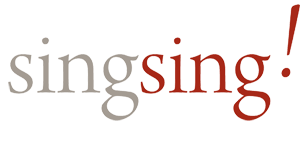
I'm a Meripenopausal... Sorry, Perimenopausal Singer
13/04/2025
So yeah, brain farts are a thing. Just like perimenopausal rage. Let’s not call it “mood swings”. It’s pure rage, alternated with deep and dark sadness, caused by a devilish rollercoaster of hormones. Combine that with the feeling like all the rewiring you’ve done in your brain during years and years of therapy and healing has been undone, so all your childhood traumas are back on the table, and you get a gist of how perimenopause has affected my brain.
Physically, it was also no walk in the park. I went from athletic to disabled. From doing crazy stuff meters high in the sky in the aerial hoop and going on regular long hikes in the mountains to not being able to go on a 30 minute stroll without having to rest in the couch for 3 days afterwards, because my muscles and joints were so inflamed. I couldn’t even type on my computer without wrist and elbow braces for support.
Educating Myself AND My Doctors Has Brought Me Back
Notice how I’m talking in the past? Bio-identical Hormone Replacement Therapy has saved me. I’m back, b*tches! 💪🏼 To those thinking “But Sarah, what about the extreme health risks tied to HRT? Aren’t you worried”, I say: “No, I’m not”.
I suggest you find current resources to correct misunderstandings and misapplications of the Women’s Health Initiative study from well over 20 years ago, which have set back women’s health care to the dark ages. And it already was very backward! We should be looking at current and updated thinking versus something from the early 2000s.

You probably will have to arm yourself with recent research studies to educate your doctors, I surely have had to! Their knowledge might still be in the dark ages, as they do not receive education on the menopausal transition. They might even dismiss and / or gaslight you. Mine did. But I have fought and I have prevailed. You can too! ⚔️🏆
Also: If you’re thinking of taking HRT too, make sure to consider if there are no personal contraindications.
And What About My Voice?
Yes, the voice can be impacted by the hormonal shifts during perimenopause. If you’re a singer in your late 30s or 40s, and you’re thinking “Is it just me, or is my voice doing weird stuff lately?”… you’re not alone. And no, you’re not imagining things.
That’s why I have invited Joanne Hayes Bozeman (who’s absolutely brilliant, by the way) in 2024 to lead the webinar The Voice in the Menopause Transition and Beyond.
Subscribe to The singsing! Sofa Library to watch the recording of this webinar and learn all there is to know about how the menopause transition can effect the voice!
A Retrospective
At the time of the webinar, I was grateful to gain all this priceless knowledge that would help me guide my (peri-)menopausal clients. I thought that that season of life was in my distant future… But apparently, I already was in perimenopause myself 🤣 In hindsight, I now recognize the first signs.
Once it finally clicked in my head that the ever-accelerating avalanche of symptoms could be due to perimenopause – because no, my doctors didn’t connect the dots, I have had to do that myself, I thought I was very lucky to not experience symptoms in my voice.
And then I started HRT. One symptom after the other started to clear up, also the ones I hadn’t been aware of.
On day 2, I demonstrated a phrase to a client during her singing lesson. And I instantly started to cry. I experienced a freedom in my voice that I hadn’t even realized I had lost! Apparently, the voice changes have happened so gradually, that I didn’t notice them. Of course, I’m not a performing singer anymore. I suspect I would’ve noticed them if I would still be active on the stage.
Voice Changes: The Missing Element in Literature and Research
When you visit health websites or browse books about the menopause transition, you’ll find long lists of symptoms like hot flashes, night sweats, brain fog, joint and muscle pain, sleep disruptions,… But for singers, there’s a crucial element that’s almost always missing: voice changes.
These vocal shifts can happen both during perimenopause and after the final menstrual period, yet they are rarely mentioned in mainstream resources. Even most gynaecologists and laryngologists (voice experts!) are unaware of the potential effects of the menopause transition on the voice, likely because the topic isn’t addressed in standard medical training.

The Silent Struggle
Very few well-known singers have spoken publicly about their experiences with the menopause transition and vocal change. And when they do, it’s typically after the fact. That silence is understandable. The menopause transition is deeply personal, and for professional performers, talking openly about changes in the voice can feel risky, especially in fields where sexism and ageism are still very real.
Singers must navigate an already challenging landscape of casting directors, conductors, managers, and critics. The last thing anyone needs is to be wrongly labeled as “past their prime” just because of a natural life transition. And let’s be clear: Not all singers experience vocal issues in midlife. The assumption that menopause inevitably leads to vocal decline is simply not true. The most troubling is the uninformed criticism directed at women during this vulnerable time.
Knowledge is power
Another eye-opener? Medical research has a bit of a… let’s say, *spotty* track record when it comes to women’s health. During the webinar, Joanne reminded us that it wasn’t until 1993 (yes, *1993!*) that the National Institutes of Health even required women to be included in clinical trials. She said, “Cis women have been overlooked, not believed, stigmatized in medical settings.” So it’s no wonder many of us are flying blind when it comes to voice changes during perimenopause and menopause!

What if, instead of stigma, there was support? What if singers were met with understanding, time, and access to targeted medical and vocal guidance? Imagine a world where voice changes during the menopause transition were part of the conversation. Not hidden away in fear of prejudice, but shared openly, with compassion and care. Because with the right knowledge and support, no singer has to face this journey alone.
In the webinar, we dove right into it. No hushed tones, no shame, just good, solid information. As Joanne put it, “The aim is holistic preparation, anticipatory guidance with the best understanding that we have to date.”. The goal? To help singers keep their voices healthy through midlife and well beyond. Because yes, hormonal shifts can affect your voice. Not always, not for everyone, and not in the same way.
Go to The Voice in the Menopause Transition: The Missing Element in Literature and Research to read Part 2 of this blogpost, in which I go deeper into the possible effects of the menopausal transition on the voice.
Knowledge is power. And the webinar The Voice in the Menopause Transition and Beyond is packed with it. If you’re curious (or maybe even a little worried) about how this stage of life could affect your voice and how you can navigate through it, subscribe to The singsing! Sofa Library and get immediate access to the recording!
You’ll get all the important details and probably many “aha!” moments too.

Stella Handley, Vocational singer
Stella Handley, Vocational singer


Joanne has given me concrete, actionable information, and suddently it all seems much more manageable, I see a way forward. I feel reassured, informed and empowered.
Vocational singer
Vocational singer

As always, feel free to send me your thoughts, questions, and feedback in the comments below this blog, via the contact form or in the singsing! online community
Cordially,
Sarah


